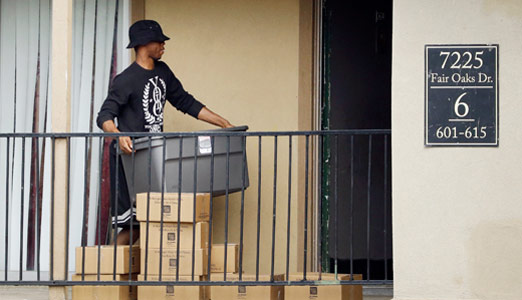
There is a panic because a man in the heavily populated Dallas-Forth Worth area in Texas, who had recently traveled from Liberia to the United States, has come down with the Ebola virus. There are indications of a lack of vigilance by the hospital: He was sent home for two days before the institution realized what they might be dealing with, even though he had emphatically warned them about his Liberia trip. Then it was found that there were no emergency response protocols to sanitize his dwelling place, clothing and bedding, because of a lack of subcontractors immediately available to do the work. The sick man may have had contact with as many as 100 people in the interim. If any of them have been infected, each of them could have had contact with as many others.
Why should the Texas Health Presbyterian Hospital and state and local health authorities have been so unprepared? Why should anybody have been taken by surprise by this situation? Why should the situation in West Africa have been allowed to fester?
Do some people think that the three main African countries where the epidemic is raging are on the moon?
Three things characterize today’s world:
*First it is highly integrated and there is more trade, travel and exchange of populations than at any time in human history. This is the result of globalization driven by the corporate drive for greater and greater profits, which in turn leads to greater instability and massive population movements, of job seekers and of refugees.
*Secondly, increasingly unsustainable levels of environmental degradation produce such things as global warming, storms and droughts, and contamination of the food and water supplies.
*Thirdly, there are ever-greater extremes of inequality both within and among countries. Countries like Liberia, Sierra Leone and Guinea, where the epidemic is raging, are so poor that their state institutional structures are unable to cope with crisis situations, including epidemics, wars and natural disasters.
In short: The potential of Ebola running wild is caused by capitalism run wild.
An immediate reaction on the part of many in the wealthy countries is to pull up the drawbridge, stop people from coming here, and blame the poor countries and their inhabitants for the mess.
Sometimes they even manage to pressure the poorer countries to help with this backward approach. The Liberian government has announced that it may prosecute the sick man in Texas because he did not tell airline authorities that he had helped a person sick with Ebola just before he left.
Another example is the U.S. government’s reaction to the “child migrant crisis” earlier this year, which was to demand that the governments of the impoverished countries from which the child refugees were coming not let people leave, and that the Mexican government not let them pass through its territory.
Right now there is a massive drought in Central America, which comes on top of a coffee blight. The drought may be related to global warming. The failure of crops is likely to have a far flung impact, as the people of the region have no other way to feed their families, and the countries lack strong state institutions to help their poor. The result is likely to be more out-migration, more inroads by organized crime, more conflict, more insecurity and more violence. This is a natural disaster leading to population dislocations, but some in the United States will blame it on the “criminal” proclivities of the darker skinned people.
Rather than engaging in panicky reactions which in the end only worsen the situation, our governments should be reminded of the words of the 17th Century English poet John Donne: Since no man is an island, “therefore never send to know for whom the bell tolls; it tolls for thee.”
We must demand that our leaders prioritize the ending of inequality among and within nations, as well as protection of the natural environment, over the profits of rapacious transnational corporations, Big Oil in the first place. Countries like Guinea, Liberia, Sierra Leone, Honduras, Guatemala, El Salvador and the rest, need to be able to develop strong institutions to protect their own people against epidemics and other disasters. They cannot do this while mired in poverty. International trade arrangements have to be reworked to the infinitely greater benefit of the poor nations and of the working people of the rich countries.
Slamming the door against the main victims of imperialist exploitation is impossible; microbes know no borders. Ebola bears a strong resemblance to the “red death” in Edgar Allen Poe’s short story of “The Masque of the Red Death“: Prince Prospero had locked himself and his wealthy friends away from the horrible disease that was depopulating his domains, feasting and dancing while the world outside suffered and died.
But it was no use; the red death got in, and slew the wealthy as well as the poor.
Photo: A young man retrieves food supplies and personal materials left by the North Texas Food Bank and the Red Cross on the front stoop of an apartment at The Ivy Apartments complex, Oct. 2, in Dallas. Dallas County officials have ordered family members who had contact with the patient diagnosed with the Ebola virus to stay inside their home. (AP Photo/Tony Gutierrez)












Comments